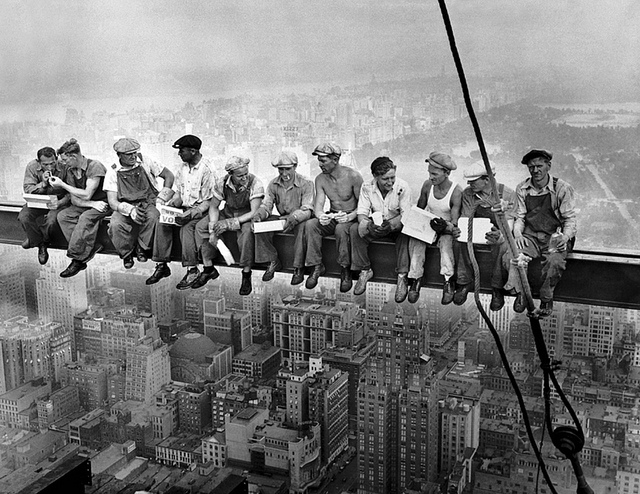
A while back in my office, the fire alarm went off.
It was followed by silence, which slowly turned to panic, and then finally an escalating rush towards the exit door.
Paranoia overtook me almost immediately as I thought about writing my will down on an old napkin and also thinking how I could save my work from the impending fire (insane thoughts, I know).
Instead, all I did was grab my phone and head out the door with my colleagues—led more or less by instinct. I figured the phone is most important, as I could call my loved ones in case they’d learn about the fire through social media.
As my colleagues and I were making our way to the exit, I spotted quite a number of others frantically sorting out documents and files deciding on which to bring along. Some were even sending out last minute emails on their computers as the alarm bellowed its deathly chimes.
When we gathered at the assembly point in the sweltering heat, the security officer informed us that the alarm went off due to a system glitch. Many of us heaved a loud sigh of relief.
However, I overheard others grunting and complaining about the whole incident. Some felt it was a huge time waste breaking up the flow of work—the time we spent evacuating could have been done working.
The incident stuck in my mind for a few days.
In that fire aftermath, my biggest takeaway is that society has ingrained in us the only way to feel secure and have security is that we are measured based solely on our competency at work and what we do. And within this fire incident, you could see people, myself included, were frantically trying to save sheets and sheets of paper in the midst of a supposed emergency—all in an effort to stay ahead in the rat race of modern society.
This immediately called to mind one of my favorite quotes from Sergio Leone’s The Good, the Bad, and the Ugly, where Eli Wallach’s character said, “If you work for a living, why do you kill yourself working.”
Well, I think to a large extent, we have learned that work is the all-important truth we must abide by.
Before elaborating more on the paragraph above, I must first state that work allows us to afford certain privileges in life, such as a nice vacation, gym or yoga membership, or even the food on the table.
Nevertheless, if we somehow over-emphasize the importance of work, that’s when we end up being controlled by it.
Look at it this way, work allows us to, in a way, afford a quality of life, but at the same time, it also creates a culture of fear.
Plain and simple, what I refer to as a culture of fear is when one constantly feels the need to be efficient and productive at work for fear of being seen in a bad light by the boss or fellow colleagues.
That is not to mention that words like efficient and productive are words used to describe machines (more on this some other day).
It seems that at every turn, one is constantly trying to be productive, not because of commitment to the work, but because of fear. This fear may actually be a projection of our own minds, because we think we cannot take a break after a long stretch at work, for the boss will brand us as lazy and put us next on the chopping block.
After a while, we begin to condition ourselves that this line of thinking is only to be expected of a working adult. Oftentimes, the working adult views himself/herself in a completely different category as others; they see themselves as people who attend to important business in order to earn a living—long and punishing hours of work at the office is accepted to have a good quality of life.
But is it really?
Are we really attending to the important business?
Or are we mistaking the means for the end?
Take for example the fire alarm incident, where I saw people packing away documents instead of heading for the exit. If we say that work is for a higher quality of life, then why is it that we are placing work ahead of life itself?
It seems as though we may have forgotten that the most precious element in life is life itself. The very fact that we are alive is something to be joyful and grateful for—anything else is an added bonus.
We need to cut through all the smog in our lives to find what is truly important in life. For, at the end of the day, nobody is going to look back and say I wish I had spent less time with my loved ones or I could have done that paperwork instead of attending my daughter’s first piano recital.
Let go of the fear we’ve created within ourselves, take in the hard work we have done, and then take a load off. Pause at work and look at your desk, actually seeing the monitor and stacks of paper in front of you—know that this does not define you. You can choose not to be controlled by this. You have the power.
It is prudent to be mindful that we are not in the money business and we are not in the work business, instead, we are in the life business.
Love elephant and want to go steady?
Sign up for our (curated) daily and weekly newsletters!
Apprentice Editor: Jessica Sandhu/Editor: Travis May
Photos: Flickr






Read 0 comments and reply